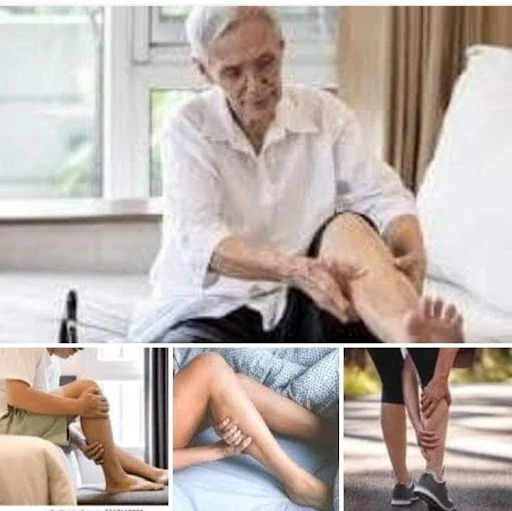Effective-Remedies-for-Preventing-Nighttime-Leg-Cramps
Effective Remedies for Preventing Nighttime Leg Cramps
Dave Ikiedei Asei
01/08/2024
Nighttime leg cramps can disrupt sleep and cause considerable discomfort. Addressing these cramps involves a combination of preventive measures and immediate relief strategies. Here are ten effective remedies to help stop leg cramps at night:
Stretching Exercises
Engaging in gentle stretching exercises before bedtime can be highly effective in preventing leg cramps. One of the most beneficial stretches is the calf stretch. To perform this stretch, flex your foot upwards and hold the position for 15-30 seconds. This action helps elongate the calf muscles, reducing the likelihood of cramps during the night.Hydration
Adequate hydration is crucial in preventing muscle cramps. Dehydration can lead to an imbalance in electrolytes, which may trigger cramping. Ensure you drink plenty of water throughout the day to maintain proper hydration levels and support overall muscle function.Electrolyte Balance
Maintaining a proper balance of electrolytes such as potassium, magnesium, and calcium is essential for muscle health. Consuming foods rich in these minerals can help. Bananas, for instance, are high in potassium, while leafy greens and dairy products provide magnesium and calcium, respectively. Incorporating these foods into your diet can support muscle function and reduce cramp frequency.Warm Compress
Applying a warm compress or heating pad to the affected area can help relax the muscles and alleviate cramps. The heat increases blood flow to the muscle, easing tension and promoting relaxation. This method is particularly effective if used shortly before bedtime or when a cramp occurs.Cold Compress
For immediate relief, a cold compress can be beneficial. Applying a cold pack to the cramped muscle helps reduce inflammation and numb the pain. This can be particularly useful if a cramp strikes unexpectedly during the night.Proper Footwear
The type of footwear you use can influence the occurrence of leg cramps. Supportive shoes that provide proper arch support and cushioning can help prevent cramping. Avoiding high heels and opting for well-fitted shoes can reduce strain on your legs and diminish the likelihood of cramps.Massage
Gently massaging the cramped muscle can significantly alleviate discomfort. Massage helps improve blood flow to the affected area, which can ease muscle tension and promote relaxation. Regular self-massage or professional massage therapy can be beneficial in managing and preventing leg cramps.Leg Elevation
Elevating your legs while sleeping can enhance circulation and reduce the risk of cramps. By raising your legs above the level of your heart, you facilitate better blood flow, which can help prevent the muscles from cramping during the night.Avoid Alcohol
Alcohol consumption can lead to dehydration, a known factor contributing to muscle cramps. Limiting or avoiding alcohol, particularly in the hours leading up to bedtime, can help maintain proper hydration levels and reduce the risk of cramps.Regular Exercise
Incorporating regular physical activity into your routine can improve muscle strength and flexibility, which may help reduce the frequency of cramps. Activities such as walking, swimming, or cycling strengthen the muscles and improve circulation, potentially decreasing the likelihood of nighttime leg cramps.
If leg cramps persist or worsen despite these measures, it is advisable to consult a healthcare professional. Persistent cramps may be a symptom of an underlying health condition, and a healthcare provider can offer further evaluation and treatment options to address the issue effectively.
By implementing these strategies, you can significantly reduce the occurrence of nighttime leg cramps and enjoy a more restful and comfortable sleep.





Comments